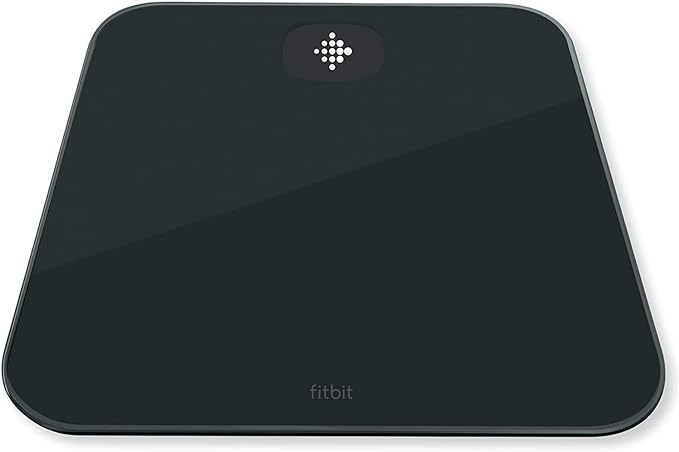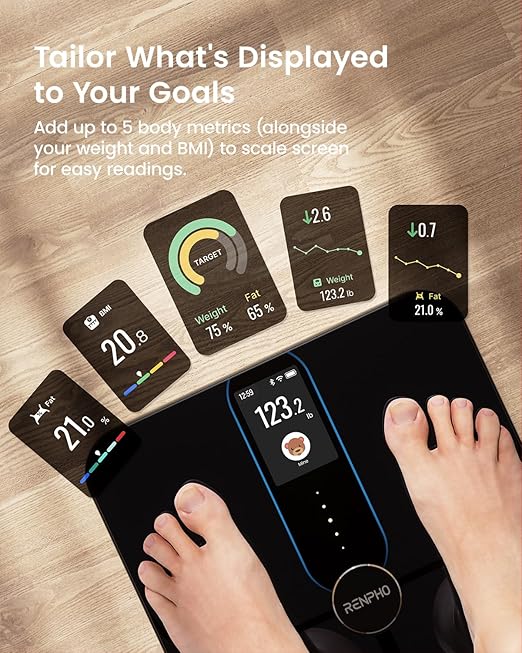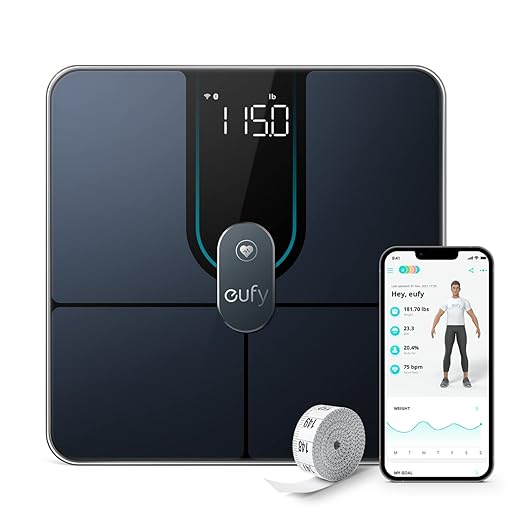In the quest for optimal fitness, technology has become an indispensable ally. Among the myriad of devices designed to aid in this pursuit, smart scales have emerged as a pivotal tool for those committed to understanding and enhancing their physical health. This article delves into the functionalities of smart scales, their benefits for fitness enthusiasts, and how they are revolutionizing the way we track and achieve our fitness goals.
What is a Smart Scale?
A smart scale is an advanced version of the traditional bathroom scale, equipped with sensors and connectivity features that provide a comprehensive analysis of body composition. Unlike conventional scales that only measure weight, smart scales offer a range of metrics, including body fat percentage, muscle mass, bone density, and water content. These devices connect to smartphones or other digital devices via Bluetooth or Wi-Fi, allowing users to track their health data over time through dedicated apps.
Key Features of Smart Scales
Body Composition Analysis
Smart scales use bioelectrical impedance analysis (BIA) to measure various components of the body. A small, safe electrical current passes through the body, and the scale measures the resistance encountered. This data is then used to estimate body fat, muscle mass, bone density, and water percentage.
Connectivity
Most smart scales sync with smartphones and fitness apps, providing a seamless way to track progress. Popular apps like Apple Health, Google Fit, Fitbit, and MyFitnessPal can integrate with these scales, ensuring all health data is centralized.
Multiple User Profiles
Smart scales can store data for multiple users, making them suitable for families or fitness groups. Each user’s data is stored separately, and the scale can recognize who is using it based on previous measurements.
Trend Analysis
These devices often come with apps that provide trend analysis over days, weeks, or months. This feature helps users understand how their body composition is changing over time and adjust their fitness or diet plans accordingly.
Benefits for Fitness Enthusiasts
Comprehensive Health Monitoring
For fitness enthusiasts, understanding weight alone is not enough. Knowing body fat percentage, muscle mass, and other metrics provides a holistic view of health. This comprehensive monitoring allows for more tailored fitness programs.
Motivation and Goal Setting
Tracking progress is a powerful motivator. Seeing concrete data on muscle gain, fat loss, or other metrics can inspire users to stay committed to their fitness routines. Many apps also allow users to set specific goals and provide reminders and motivational tips to achieve them.
Personalized Fitness Plans
With detailed body composition data, fitness trainers and nutritionists can create more personalized plans. For instance, if a smart scale indicates low muscle mass, a trainer might recommend strength training exercises. If body fat percentage is high, a nutritionist might suggest dietary changes.
Accountability
Sharing progress with friends, family, or fitness communities can provide accountability. Some smart scale apps have social features that allow users to share their achievements and encourage each other.
How to Use a Smart Scale Effectively
Consistency is Key
For accurate trend analysis, it’s crucial to use the smart scale at the same time each day, preferably in the morning before eating or drinking anything. This consistency minimizes the impact of daily fluctuations in weight and hydration.
Follow Manufacturer Instructions
Proper use ensures accurate readings. Follow the manufacturer’s guidelines regarding placement (usually on a hard, flat surface) and use (bare feet for bioelectrical impedance).
Combine with Other Metrics
While smart scales provide valuable data, they should be used in conjunction with other health metrics. Regular exercise, balanced nutrition, and other lifestyle factors play significant roles in overall fitness.
Popular Smart Scales on the Market
Fitbit Aria 2
Known for its integration with the Fitbit ecosystem, the Aria 2 measures weight, body fat percentage, lean mass, and BMI. It syncs seamlessly with the Fitbit app, allowing users to track all their fitness data in one place.

Withings Body+
The Withings Body+ provides comprehensive body composition analysis, including muscle and bone mass. Its app, Health Mate, offers detailed trend analysis and integrates with over 100 health and fitness apps.

Renpho Smart Scale
Renpho offers a budget-friendly option without compromising on features. It measures 13 different metrics, including body fat, muscle mass, and BMI, and syncs with popular fitness apps.

Eufy Smart Scale
This scale provides 12 insightful measurements, and its user-friendly app offers easy tracking. It’s a good choice for those looking for a balance between cost and functionality.

The Future of Smart Scales
The development of smart scales is ongoing, with advancements focusing on increasing accuracy and expanding functionalities. Future smart scales might include features like hydration tracking through sweat analysis, real-time health monitoring, and even integration with virtual fitness coaches.
Conclusion
Smart scales are more than just devices for measuring weight; they are comprehensive health monitoring tools that provide invaluable insights for fitness enthusiasts. By offering detailed body composition analysis, seamless connectivity, and personalized health tracking, smart scales are revolutionizing the way we approach fitness and health. As technology continues to evolve, these devices will become even more integral to our fitness journeys, helping us achieve our health goals with greater precision and efficiency.